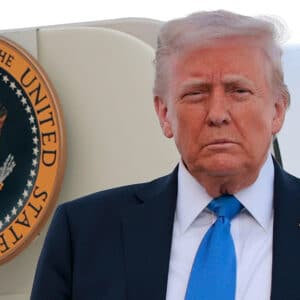President Trump Defends Secretary of Defense Pete Hegseth Amid Signal Chat Leak Controversy
On [Date], President Donald J. Trump publicly reaffirmed his support for Secretary of Defense Pete Hegseth after a private Signal group message detailing a U.S. military operation in Yemen was inadvertently shared with Jeffrey Goldberg, editor‑in‑chief of The Atlantic. The disclosure, which occurred when Mr. Goldberg was mistakenly added to a secure distribution list, prompted calls from several Democratic lawmakers for Secretary Hegseth’s resignation. However, President Trump dismissed any suggestion that the Secretary bear responsibility, attributing the error to National Security Advisor Michael “Mike” Waltz and emphasizing the operation’s success and absence of tangible harm.
This article presents a comprehensive, professional analysis suitable for web publication. It examines the leaked communication, the President’s defense of his Defense Secretary, the roles of key administration figures, reactions from Congress and the national‑security community, and the broader implications for secure communications within the Department of Defense (DoD) and the White House.
1. Background: The Yemen Strike and Secure Messaging
1.1 Overview of the Military Operation
In mid‑March, U.S. forces conducted a precision strike in Yemen targeting high‑value militants linked to extremist organizations. The operation, carried out by joint Special Operations and intelligence units, reportedly neutralized a planned threat to American personnel and regional partners. Although the Pentagon has declined to release detailed operational parameters for security reasons, multiple sources have described the mission as a success, citing no American casualties and the capture of critical intelligence materials.
1.2 Use of Encrypted Messaging in National Security
To coordinate rapidly evolving developments, DoD and White House staff frequently rely on Signal, an end‑to‑end encrypted messaging application that automatically deletes messages once delivered. Signal’s security features—forward secrecy, message disappearance timers, and no metadata retention—have made it a preferred platform among national‑security professionals. Nonetheless, its reliance on user‑managed distribution lists and manual contact additions creates risk; a single misstep can expose sensitive information to unauthorized recipients.
2. The Leak: How the Signal Message Reached The Atlantic
On March 15, Secretary of Defense Hegseth distributed a “Team Update” via a Signal group chat that included senior officials responsible for national‑security policy and oversight. The message summarized the upcoming Yemen strike, specifying timelines, weapon types, and objectives. Intended recipients comprised the National Security Advisor’s office, the White House chief of staff, and other top officials cleared to receive real‑time operational updates.





